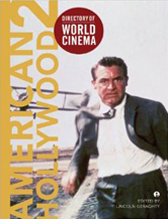
REVIEW: Changeling
Released in close succession, Gran Torino and Changeling seem to offer two vastly disparate visions from director Clint Eastwood. The former, in which Eastwood stars as an irascible war hero turned vigilante offers a contemporary spin on the type of narrative that made Eastwood a screen legend. By contrast, the latter, a tale about one woman’s battle to be reunited with her son, seems more like traditional midday-movie fare than the stuff of Dirty Harry.
And yet for all their outward differences, there is a striking similarity in these films that suggests Changeling is as much an ‘Eastwood film’ than its current box-office competitor. Like Gran Torino, which plays out a one-man war in the context of racial disharmony and gang violence, Changeling is also very much about a solitary rebel fighting insurmountable odds.
Set in 1928, Changeling details the trauma of a child disappearance when the son of single mum Christine Collins inexplicably goes missing. What is engaging about this tale (all the more for being based on a true story) is that the drama is centred not on the hunt for the missing boy but rather Collins’ attempts to convince authorities to continue the search, when later, the wrong child is returned in his place.
It’s precisely this kind of bureaucratic incompetence that serves as a distinctive character of Eastwood’s work. Throughout both his acting and directing career, Eastwood has been fascinated with characters whose battle against urban or social decay (from Harry Callahan to his films such as Unforgiven and Mystic River) is repeatedly matched by the unwillingness or ineptitude of the law to effectively intervene. In this sense alone, Changeling is pure Eastwood territory.
 And the cast too is generally strong. As Christine Collins, Angelina Jolie certainly looks the part and performs her grief with a desperate repetitiveness, a characteristic that J. Michael Straczynski emphasises throughout his highly emotive but at times unimaginative script. In one particular scene Jolie is left to scream at another character, ‘Did you kill my son?’ close to a dozen times. It’s a strategy that’s clearly meant to reflect her character’s fixation on uncovering the truth of her child’s whereabouts but as a consequence the drama of such moments occasionally falters under the burden of what seems a forced repetition.
And the cast too is generally strong. As Christine Collins, Angelina Jolie certainly looks the part and performs her grief with a desperate repetitiveness, a characteristic that J. Michael Straczynski emphasises throughout his highly emotive but at times unimaginative script. In one particular scene Jolie is left to scream at another character, ‘Did you kill my son?’ close to a dozen times. It’s a strategy that’s clearly meant to reflect her character’s fixation on uncovering the truth of her child’s whereabouts but as a consequence the drama of such moments occasionally falters under the burden of what seems a forced repetition.
But as was the case with Gran Torino, it’s in action and not words where Changeling is most effective. As Collins’ determination to find her real son threatens the already tarnished image of the police department, she finds herself incarcerated in a psychiatric ward for women who dared stand up in a man’s world. And in these few scenes Eastwood’s depiction of the systemic brutalisation of women by a self-serving masculine hierarchy not only provides the film’s most compelling moments, he grants Changeling a praiseworthy moral conscience.
It’s perhaps a slight disappointment then, that Eastwood’s film, having built such a powerful vision of injustice through its portrait of institutionalised misogyny, that Changeling comes undone in its overly protracted and unnecessarily stagy last act. Where some filmmakers might have concluded Collins’ tale sooner (through either definitive resolution or by imposing a sense of unending limbo), Eastwood takes his time getting to the final scene. It’s not an entirely disingenuous strategy given the subject matter (infinitely deferred truth) but the way in which Eastwood gets there, (replete with a hackneyed piano motif that outlasts its welcome), is less than convincing.
In the film’s final moments Eastwood seems content to impose by fiat (through a tacky exchange of dialogue) what was fairly evident throughout the preceding narrative and ultimately sells the film, and by extension its emotional resonance, short. While such gripes tend to shore up my belief of Changeling as one of Eastwood’s lesser works, in a broader context the film still has merit enough to warrant a considered viewing.
One Response to “REVIEW: Changeling”
RSS feed for comments on this post. TrackBack URI





Good blog! I genuinely love how it’s easy on my eyes and the posts are well written. I am wondering how I can be notified whenever a new post has been made. I have subscribed to your rss feed which ought to do the trick!